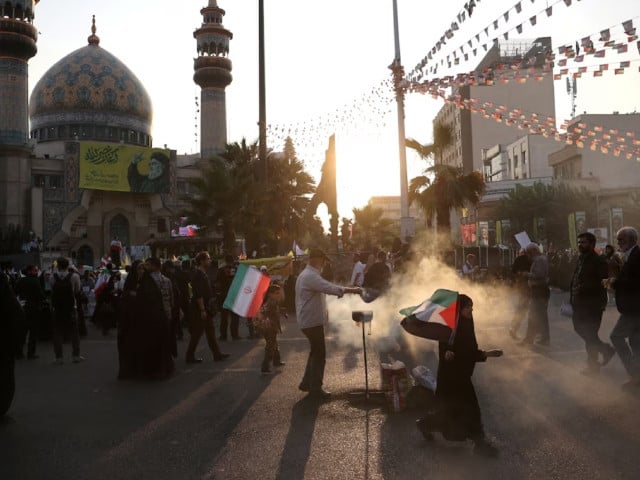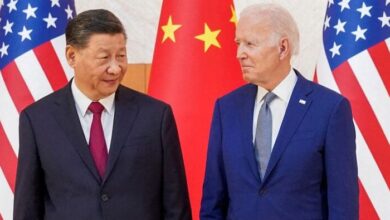Tehran has issued a stern warning to Gulf Arab states, declaring it “unacceptable” for any of them to allow the use of their airspace or military bases for attacks against Iran.
A senior Iranian official emphasised that such actions would prompt a strong response from Tehran, underlining the critical nature of the region’s neutrality amidst rising tensions with Israel.
The warning comes as Iranian Foreign Minister Abbas Araqchi visits Saudi Arabia, Qatar, and other Gulf nations to discuss regional security.
Iran’s message to Gulf states stresses the need for regional unity against Israel and highlights that any collaboration with Israel, including the use of airspace, would be seen as a hostile action.
This development follows an Iranian missile attack last week, which has raised concerns of potential Israeli retaliation.
Israel has been attacking Hezbollah and Iranian positions in Lebanon and Syria in recent weeks, and there are growing fears that the conflict could spill over into direct confrontations between Israel and Iran.
Amid these tensions, US President Joe Biden is expected to speak with Israeli Prime Minister Benjamin Netanyahu about possible military actions against Iran. Washington is reportedly keen to influence Israel’s response, particularly to avoid triggering a broader regional conflict.
Biden previously stated that he would not support an Israeli strike on Iran’s nuclear sites and has cautioned against attacks on Iranian oil facilities, which could spike global oil prices.
The Iranian official noted that discussions with Gulf states have not yet touched on the issue of oil production, despite concerns that Israel could target Iranian oil facilities in a retaliatory strike.
The Organization of Petroleum Exporting Countries (OPEC), led by Saudi Arabia, has significant spare capacity that could offset any loss of Iranian oil supply.
However, Tehran has warned that any intervention from countries supporting Israel could make their own interests in the region targets.
Relations between Saudi Arabia and Iran have seen a political rapprochement in recent years, easing some regional tensions.
However, the 2019 attack on Saudi oil facilities, which briefly disrupted 5% of global oil supply, remains a fresh reminder of the volatility in the region. Iran was blamed for that attack, though it denied involvement.
A Western diplomat in the Gulf noted that during last week’s meeting between Gulf states and Iran in Qatar, Tehran urged regional neutrality and emphasised that Gulf states’ neutrality was the “bare minimum” expected.
The presence of US military bases in Bahrain, Kuwait, Qatar, Saudi Arabia, and the UAE adds another layer of complexity, as Iran is closely monitoring how these bases might be used in the event of a conflict.
Meanwhile, the escalating situation on Israel’s northern border has added further pressure. Hezbollah and Israeli forces have been exchanging fire, with casualties reported on both sides.
Israel continues to bomb Hezbollah strongholds in Lebanon, and Netanyahu has warned of a “long war” similar to the ongoing genocide in Gaza.
As President Biden prepares for talks with Netanyahu, the focus will likely be on preventing the conflict from escalating into a full-scale regional war, especially as the US leader has expressed reservations about attacks on Iran’s critical infrastructure.
The outcome of these discussions could play a pivotal role in shaping the future course of the conflict.







